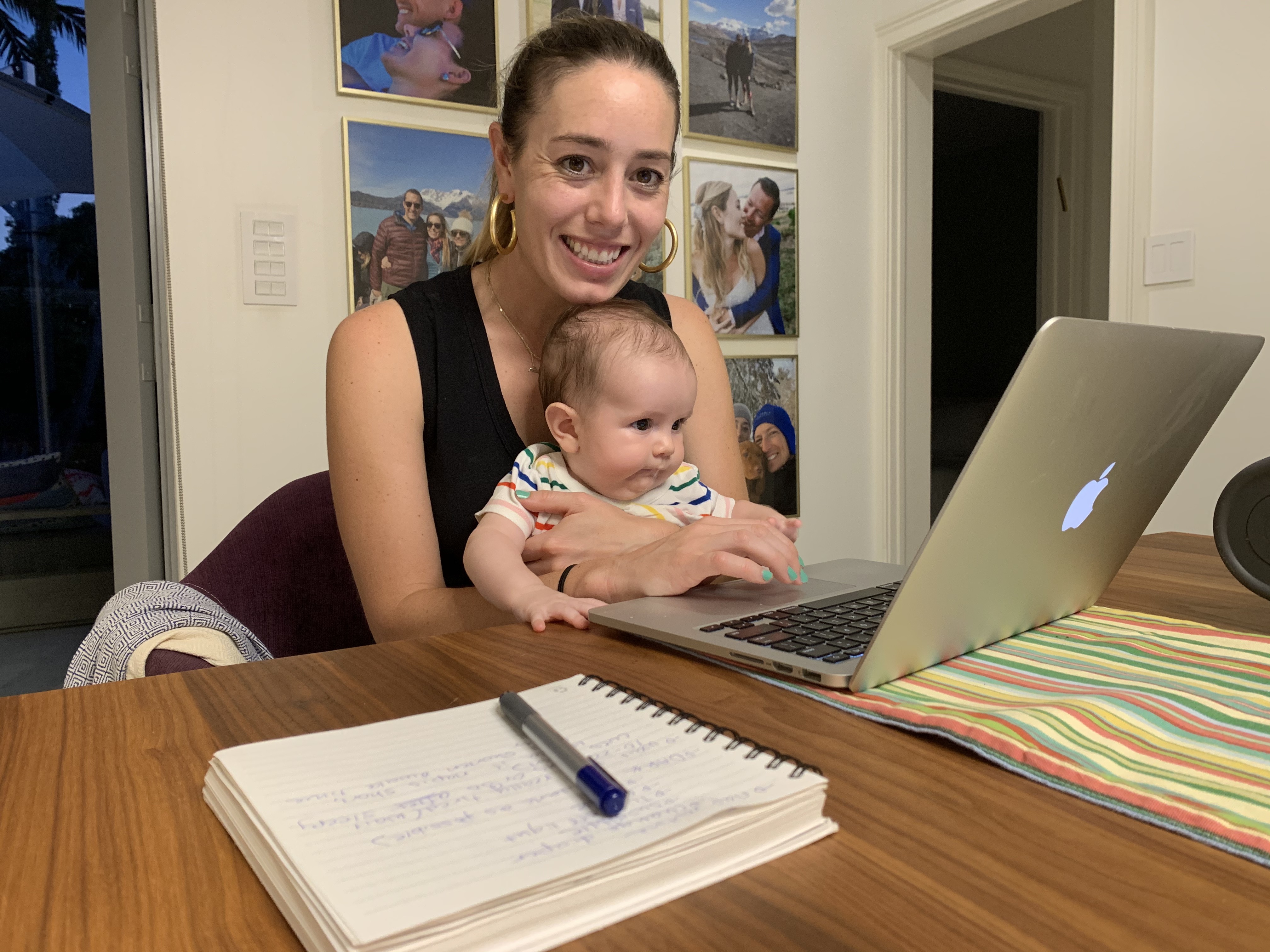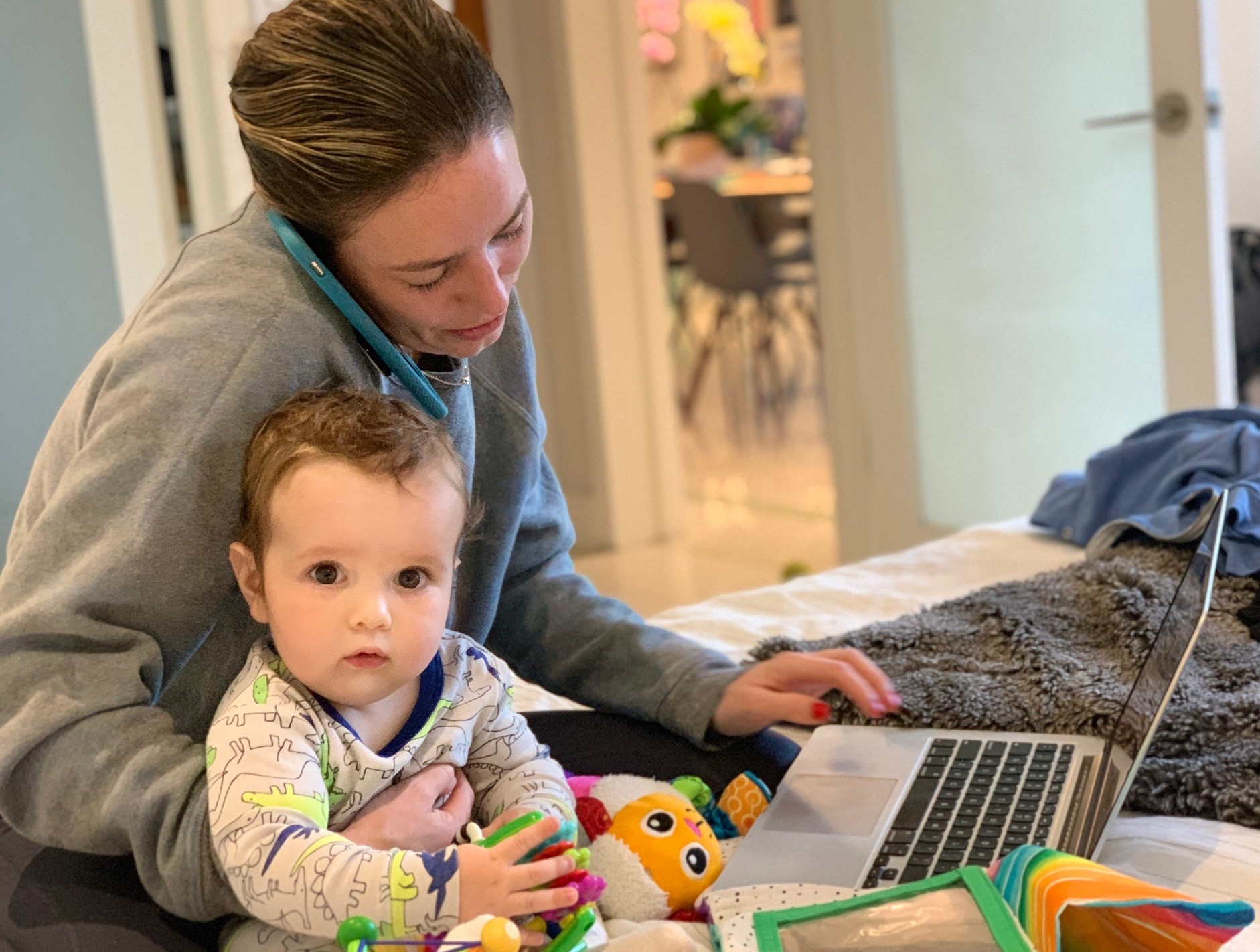Hello, Wednesday. It’s been a long week.
We’re all trying to stay afloat during this wild, confusing time. We’re flying blind out here, so stress and some fails are all but inevitable. Afterall, we’re attempting the impossible: parenting while working (or working while parenting, depending on the hour). There’s no playbook for this.
One thing that makes a world of difference is how companies communicate with employees. It seems fairly straightforward, but not everyone is hitting it out of the park. A case study: one mom we know had her company proactively tell her not to stress, that they knew this would require flexibility and support. Her response? “I feel like for the first time I am actually being seen for who I am, an employee and a parent.” On the flipside, as of 11 PM Sunday, several people had still not heard from their companies about WFH plans and when they asked they were told to decide on their own. Unsurprisingly responses like that lead to increased stress and anxiety.
People are looking to employers for guidance. If you manage people or work in HR, it’s critical to clearly communicate expectations and plans. Repeatedly let people how you are going to support them and that we are all in this together. How and what you communicate right now is going to have an outsized impact. Remember that.
So what are working parents actually doing to try and make this work?
Everyone’s experience is different, but here’s a run-down of what I’m seeing:
We’re all gymnasts now:
Like most things parenting, there’s no ‘one-size fits all’ solution. We’re all having to improvise and stay flexible as we dream up creative ideas to keep kids safe and entertained while getting work done. A lot depends on the number of kids you have, their ages, and where you live.
But the reality is this: no amount of educational programming is going to change the fact that we are asking parents to literally do two full time jobs simultaneously in an entirely new context. To say it’s hard diminishes how challenging this really is.
Here are a few of the solutions that are working:
- Parenting shifts: if there are 2 of you, alternate who is working and who is taking care of kids. Share your calendars to sync up on meetings and calls in advance
- Alternative hours: try blocking time in the early AM, after bedtime and on weekends. If you don’t usually work on weekends, you may need to now to help cover time you’re not able to work during the week
- Closed-loop care: if you feel you can do it safely, combine caregiving responsibilities with neighbors – like parenting shifts, but with more hands (limit the number of people, stay safe)
- Virtual babysitters: Proactively ask for help. Get grandparents, cousins, and friends set-up on video calls. If there’s an issue, that adult can yell your name
- Crowdsource ideas: there are a lot of guides online with activity ideas and free resources – use them!
- Screen-time: If you’re going to use it, now is the time. Luckily, there is more educational content than ever before
- Plan it out: How much can you do tonight to set-up for tomorrow? The more we can prep each night (meals, games, activities, video chats), the better tomorrow will be
- Don’t hide: People will see and hear kids. It’s OK. If you see one, smile and wave. If you’re leading the call, privately message the person and let them know it’s OK and that you can also reschedule if they prefer
The Takeaway: Work as a team. Let your partner know what you need and make a plan. Take breaks, get fresh air, keep perspective. There are going to be bad days and that’s ok. None of this can do this alone, we need support, even if your help is virtual right now.
Stress, it’s all around us
What are parents stressed about? Everything. But the top concerns we’ve seen are:
- Parenting guilt: My kids are seeing me work all the time, is that bad? I can’t give my kids much undivided attention right now, will it affect them? I don’t want my kids to feel my stress/anxiety, how can I shield them? My kids have a ton of questions and I can’t answer them all, what do I do?
- Sandwich Generation: Many of us are trying to care for both our own parents and our kids (and work!). Do we let grandparents see grandkids knowing grandparents are at higher risk? What if grandparents are your childcare? What if at home care can’t come to care for parents or sick family members?
- Job security: What’s happening in this market and will my company have lay-offs? Given that my attention, energy, and time are now torn between my work, family, kids and parents, am I more at risk of being let go than my colleagues who aren’t parents?
- Leave & Pregnancy: I’m on leave, will I still be employed when this all ends? I’m pregnant, I am not sure how to tell my boss when we’re not even in the same place. Will being pregnant put me more at risk for lay-offs? Can I actually still take my planned paternity leave or will that look bad now?
How can companies help employees manage that guilt?
- Flexibility: It’s critical to extend as much flexibility and understanding as you can right now. If you’re a manager, reinforce this message often
- Community: Help your working parents connect with each other and peers at large. It’s a time for information sharing and sanity checks. There is a real hunger for community, guidance, and support right now
- Humanity: Give space for release. You know those moments of levity that happen in the hallways? We miss those. Start a whatsapp group, create a coffee break Slack channel. Share a laugh, a failure, or the positive upsides of this situation. People want space for something light and funny
- Awareness: Acknowledge and accept that this situation is impacting everyone differently. Ask questions, listen, show agility, and adapt to where people are and what they need. There’s a mental health impact here that we all need to be aware of
The Takeaway: You should never make an employee choose between family and work.
We all have a lot on our plates, but working parents have compounded stress right now. Supporting your colleagues is critical. Things are continuing to evolve and we’re all working to find a rhythm. The more empathy and support we can provide for each other, the more successful we will be


